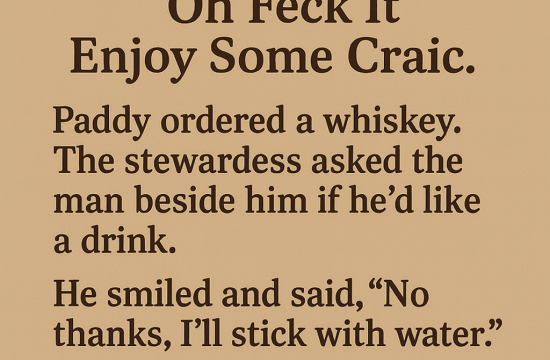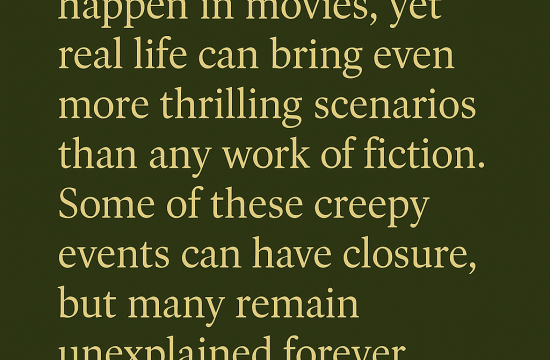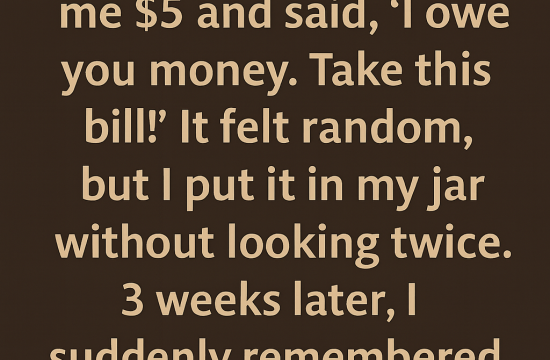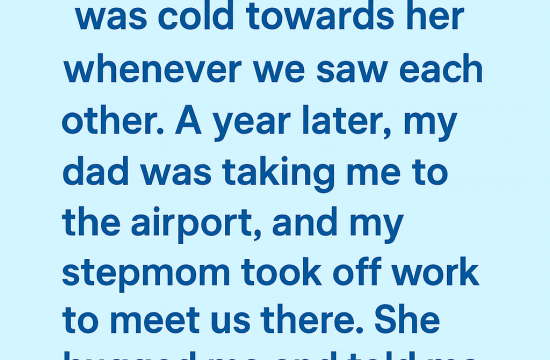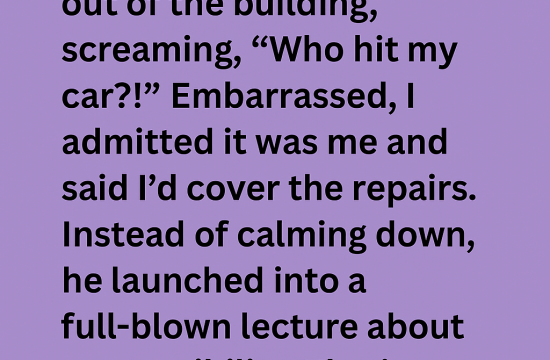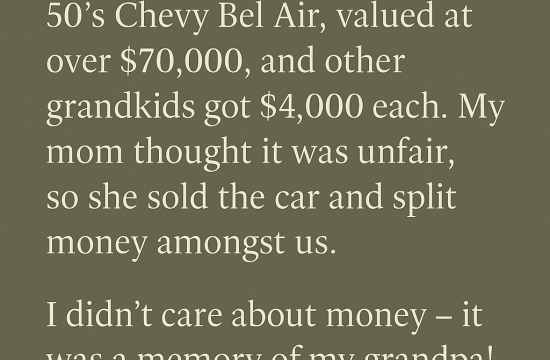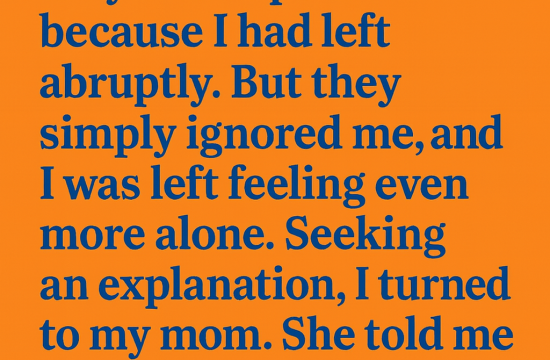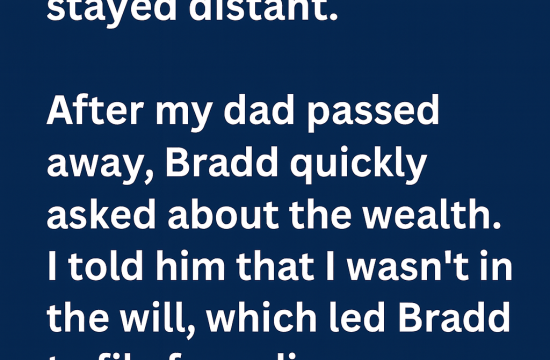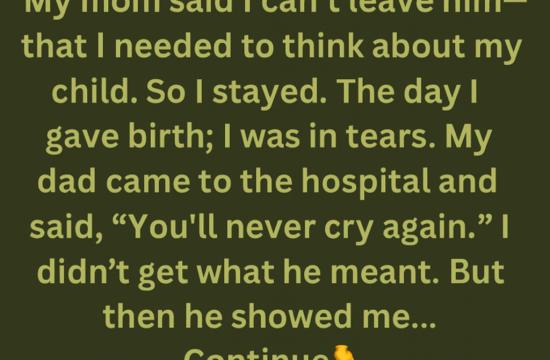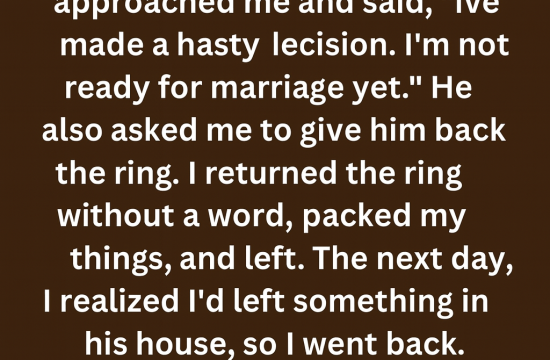The alarm clock’s shrill cry pierced the quiet of our small apartment, and another day threatened to break my spirit before it even began. My name is Paula, and survival isn’t just a word — it’s the breath that fills my lungs and the blood that pumps through my veins.
Seven years had passed since I lost my husband, Mike, in a motorcycle accident that shattered my world into a million razor‑sharp pieces. Now, at 38, I was nothing more than a single mother with calloused hands and a heart that refused to give up.
Adam, my 12‑year‑old son, is my entire universe. Every morning, I watched him meticulously prepare for school, his uniform pressed and his backpack neatly packed — a small, bright promise of hope.
“I’ll take care of you when I become a big man, Mom!” he would say, his eyes glowing with determination. Those words were the only currency that kept me going.
My job as a cleaner wasn’t glamorous, but it was my lifeline.
Mr. Clinton, the company owner, probably never knew how each paycheck was a carefully constructed bridge between survival and desperation.
I scrubbed floors, wiped windows, polished surfaces — every motion a prayer that my son and I could keep going.
Then one evening, Adam burst into the kitchen, his face lit up.
“Mom,” he chirped, trembling with excitement, “Simon invited me to his birthday party next week!”
Simon — the son of my boss. A boy who lived in a world so different from ours it might as well have been another planet where money bought everything except love.
I hesitated. Rich kids and their glittering worlds were places where we didn’t belong. But the hope in my son’s eyes was worth more than fear.
“Are you sure you want to go, sweetie?” I asked gently, my voice tight with unspoken worries.
“Yes!” His smile was pure light.
The week leading to Simon’s party was a delicate dance of planning and penny‑counting. Our budget was tight — it always was — but I was determined that Adam would look presentable.
“This shirt looks nice,” Adam said, holding up a blue button‑down that was a little too big but clean and carefully kept.
I ran my fingers over the fabric, calculating silently. Every dollar mattered.
“It’ll do,” I smiled. “We’ll fold the sleeves. You’ll look perfect.”
That evening, I ironed it with extra care, each crease a testament to love. Adam watched, a shadow of doubt flickering in his eyes.
“The other kids will have new clothes,” he murmured.
I cupped his face. “You’ll be the most wonderful boy there because of who you are, not what you wear.”
“Promise?”
“Promise, honey,” I whispered, even though I knew the world rarely played fair.
On the day of the party, as I helped him dress, a strange unease churned in my chest. But Adam looked so proud, so hopeful.
“They have a swimming pool, Mom!” he beamed. “And a magician, and video games, and—” His words tumbled over each other in excitement.
I dropped him off at the grand house, straightened his collar, and kissed his cheek.
“Have fun, sweetie. And remember — you are worthy. Always.”
“Bye, Mom!” he waved, vanishing behind double doors that towered like gates to another world.
When I came back at five o’clock, Adam climbed into the car without a word. His eyes were red, his shoulders drawn in tight. My heart sank.
“Baby?” I reached for him. “What happened?”
Silence.
Then, a broken whisper: “They made fun of me, Mom. They said I was just like you… a cleaner.”
My chest tightened as he explained through trembling lips.
“They gave me a mop, Mom. Simon’s dad laughed. He said I should practice because one day I’d replace you at his company. And Simon… he said, ‘See? Poor kids come with built‑in job training.’”
Adam swallowed hard. “Later they played ‘Dress the Worker.’ They handed me a janitor’s vest. Everyone laughed. One girl whispered, ‘Bet he’s done this before.’ And when they served cake, they gave me a plastic plate and no fork. Simon told them not to let me touch the furniture… said I’d leave stains.”
He looked down at his hands. “I didn’t even want cake, Mom. I just wanted to come home.”
I gripped the steering wheel, fury surging through me. They hadn’t just mocked him — they’d tried to strip him of dignity.
Without thinking, I turned the car around. Adam’s small voice pleaded, “Mom, please don’t…”
But I couldn’t stop.
The massive oak door loomed like an insult. I rang the bell, my hand steady despite the storm inside me. Mr. Clinton answered, smug and unbothered — until I spoke.
“How dare you humiliate my son?” I said, my voice low but shaking with rage.
“Paula, I think it’s best you leave.”
“Leave? You let them hand my boy a mop like my work is some kind of joke! You laughed while they tore him down! You think a paycheck buys you the right to treat people like trash?”
His smirk vanished.
“You may sign my checks, Mr. Clinton, but you don’t get to raise your son to think he’s better than mine. You don’t get to raise a bully and expect silence.”
His face hardened. “Consider yourself fired.”
The words slammed into me. My lifeline — gone in an instant. Adam’s eyes filled with panic as the door shut in our faces. We drove home in silence, the weight of uncertainty pressing like lead.
The next morning, I didn’t set an alarm. Adam stayed home. We ate cereal without words. By noon, I forced myself to scroll through job listings, my hands trembling over the keyboard.
Then the phone rang. I braced for bad news.
“Paula,” Mr. Clinton’s voice came through, uncharacteristically unsure. “Come to the office.”
“I’m fired, remember?” I bit out.
“Just… come, please.”
“Why?” My tone was sharp, bitter.
He exhaled. “The staff found out. Someone’s kid was at that party. Word spread. They’re all refusing to work until you come back. Even the accountants. They said what happened was unacceptable.”
I blinked back tears. “You’re serious?”
“Paula… I owe you a real apology. Please. Come back.”
When I returned to the office, the staff stood waiting — Maria from accounting, Jack from sales, the maintenance crew — all of them. They rose in unison like a wall of quiet power.
“We heard what happened,” Maria said softly. “We’re with you. What they did to you and Adam was wrong.”
Jack nodded. “We weren’t going to let them treat you like that. Not you.”
For the first time in days, I felt something other than anger or fear. I felt seen.
Mr. Clinton stepped forward, his face pale, stripped of arrogance.
“Paula,” he said, voice cracking, “I want to apologize. Not just to you, but to your son. I failed as an employer… and as a father. What happened at that party was unforgivable. I’m so sorry.”
I looked him straight in the eyes. “Money doesn’t make a man, Mr. Clinton. Character does. And character isn’t bought — it’s built.”
The room was silent. Then, slowly, I picked up my cleaning supplies. Not because I had to, but because I chose to.
Sometimes, the world bends in unexpected ways. Sometimes, it delivers a justice no paycheck could ever match.
And that day, as I walked back to my work, I held my head high — not as a cleaner, not as an employee, but as a mother who refused to bow to cruelty.
Because dignity is something no one can take… unless you let them.
Ayera Bint‑e has quickly established herself as one of the most compelling voices at USA Popular News. Known for her vivid storytelling and deep insight into human emotions, she crafts narratives that resonate far beyond the page.


